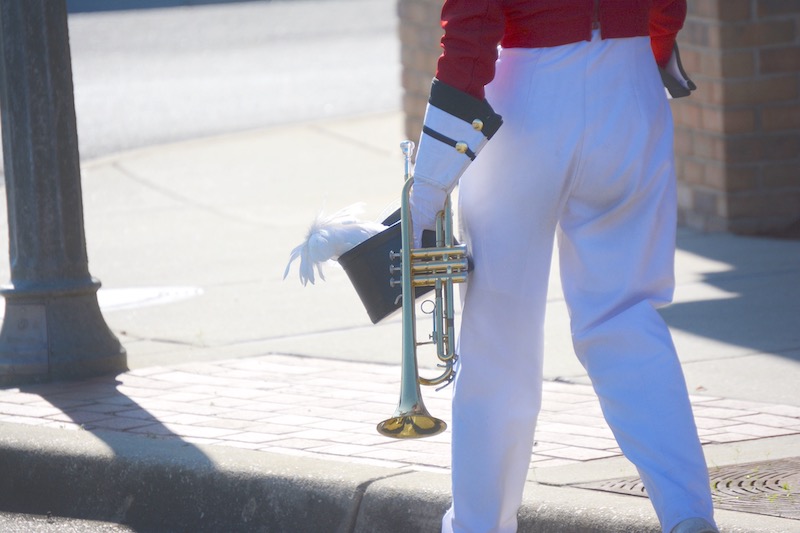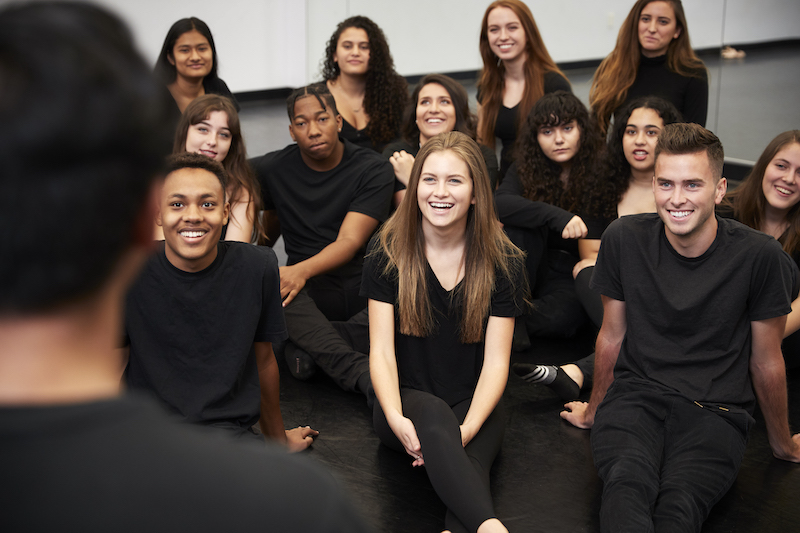College admissions are increasingly competitive, especially at top schools, with the number of applicants growing each admissions cycle. As the number of applicants increases, each must work even harder to stand out from the crowd, and to be noticed in the deluge of applications.
Extracurriculars, how you spend your time outside the classroom, are the best way to set your application apart from your peers. High grades are very important for college admissions, but stellar academic performance on its own is insufficient. In this article, we’ll explore why extracurriculars matter, how colleges evaluate them, and how you can impress colleges with your own endeavors. Let’s get started!
What is an Extracurricular Anyway?
Extracurriculars are anything you do outside of classroom academics, whether or not the activities are school-sponsored.
This is an incredibly broad description, so we’ll give you some examples of common extracurricular activities:
- Sports. Either teams hosted by your school, regional leagues, or gym-based competitive sports. While these are an incredibly common activity, that does not make them any less valuable. See our admissions guide for athletes for more information.
- Work. Many students work part time, to get a bit of spending money or to help out their families. These jobs count as extracurriculars, and can show your maturity. Both formal and informal jobs count, from waiting tables to babysitting.
- Volunteering. This can be a valuable activity, as it shows your desire to better your community, and give back to those around you.
- Clubs. There are myriad clubs at high schools, from social to academic, and everything in between. You should note that the number of clubs you join matters less than your level of involvement. A deep involvement in a single organization is more impressive than a passive commitment to several.
- Arts. Be it music, dance, or theater, the arts are a great way to express yourself and participate in an activity. See our admissions guide for artists for more info.
- Internships. Whether these are paid or unpaid, these can teach you valuable skills, and provide experience to help you explore various disciplines.
- Family obligations. While helping with the occasional chore does not count, caring for a sick family member, providing child care for siblings, or assuming major obligations in your household.
This is not an exhaustive list, but we hope it gives you some idea of what your options are for extracurricular involvement. Generally, however, any activity you participate in outside of classes, that you devote significant time and effort to, counts as an extracurricular activity.

What Colleges look for in Extracurriculars
Colleges want to understand who you are, and they use extracurriculars as a lens to understand you; your motivations, accomplishments, and character.
Thus what colleges look for when they examine your extracurriculars are the following things:
- Commitment. College is a four year commitment, and admissions officers want to be sure that the students they admit now will go on to graduate. Thus demonstrating your ability to commit to an activity through your extracurricular involvement lets colleges know you follow through on what you begin.
- Passion. Colleges want to admit students who care about things, who have big ideas, and who want to change the world. This is especially the case at top colleges. What you care about is less important than that you care about something strongly.
- Maturity. College is a major transition from the end of high school, and universities want students who are able to handle it.
- Leadership. This is one of the ways you can demonstrate your maturity; what responsibilities you have assumed, and how you have handled situations when you were in a position of authority. Note that leadership can be displayed through both assigned responsibilities, and when you assumed responsibilities in a more unofficial capacity.
- Intellectual Vitality. Schools want students who are genuinely interested in learning, and who are naturally curious.
Schools want students who will contribute to the communities they are building on campus, and who will contribute unique talents, skills, points of view, and experiences. Thus, in your extracurriculars, they want to see what you have devoted yourself to, and what you have achieved through your efforts.
Thus there are no “right” activities to participate in or awards to win which will assure your college admission. Indeed, almost any activity you participate in can bring you acclaim and bolster your application, if your involvement in it displayed your maturity, passion, and ability to contribute to a university.
We recommend specializing in one or two activities. While it is tempting to fill your schedule with as many different options as you can, this actually doesn’t help your application. By spreading your resources between many activities, you are able to devote less time and effort. By focusing on a few, you are able to heighten your involvement and accomplish more impressive things.
Further, a student who spends the bulk of their time on a single activity or passion stands out more to admissions officers.
Here are the activity lists of two students, which stands out to you more:
- Student A participated on a robotics team, did several coding camps, and volunteered to teach coding to Girl Scouts.
- Student B played the violin, ran track, did crew, tutored middle school students in math, and had a part time job at a bookstore.
Both of these students have great accomplishments, but a clear narrative arises from the first student, while the second appears more unfocused. This does not mean the second student is doomed, merely that they will have to work harder to show off their talents.

How it Worked for a Former Ivy Scholars Student
To show you what this approach looks like, we’ll discuss how one of our Candidacy Building students approached their extracurriculars, and how they managed to accomplish greater things than they ever anticipated. As we do, we’ll give you tips for your own endeavors.
Our student was interested in programming initially, and even as a freshman wanted to make a positive impact, but had no idea how to start. They’d been programming since the age of seven with their dad but were still looking for a way to apply their skills.
During their freshman year, they began building websites, first for themself, and later for friends. They did this for free and used the experience to teach themselves the basics of web design. They continued this experience in sophomore year when they created a website meant to share memes, and it spread through their school. While the website didn’t become the next Reddit, this did give the student experience in making and marketing a website, and in making their user interface accessible and easy to use.
They also began helping their family do taxes and realized that the process was fairly simple math, combined with a lot of busy work. There should be a way to automate the process, and this would help a lot of people.
The student was interested in helping disadvantaged children especially, due to their family’s connection to an orphanage in India. While they couldn’t adopt all the children, perhaps the student could use their knowledge of coding and new skill with finances to help organizations that did care for children.
The student coded a bookkeeping app that automated many functions, and which allowed hours of work to be done in minutes. The next challenge was finding a way to implement it. They reached out to numerous organizations and were rejected a dozen times before one IT manager saw the promise in their app.
Working with the IT director, the student was able to tailor their app to the organization’s needs, creating a scalable billing and payment app for the organization’s internal processes, helping them save hundreds of hours of labor.
If you just start at the last step, this seems like an impossible task for a high school student, but what makes a step a giant leap is all the steps before. By starting small and continually building upon and deepening their involvement, the student was able to achieve great things, and make a real difference. We were glad to be able to help them along the way and give them the tools they needed to succeed.
Final Thoughts
We know high school can be a stressful time just from classes and homework, and adding extracurriculars to that can make students feel overwhelmed. You should try to find extracurriculars you truly care about, that gives you a chance to unwind from the challenges of school, while still allowing you to accomplish great things.
If you aren’t sure what your passions are, or are unsure of where to begin your exploration, schedule a free consultation to learn about our Candidacy Building service, and how we can help you pursue your dreams.








